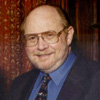2009 News Archive
Department Mourns the Loss of Professor Edward Titlebaum

The Department of Electrical & Computer Engineering is sad to report the loss of Professor Edward Titlebaum, who passed away in Homestead, Florida from a stroke on May 27, 2009. Professor Titlebaum was born in 1937.Professor Titlebaum's scientific and academic career spanned five decades. After completing his undergraduate studies in Electrical Engineering at Northeastern University and the Massachusetts Institute of Technology, he attended Cornell University and earned his Ph.D. in Electrical Engineering in 1965. He joined the faculty of the Electrical Engineering Department at the University of Rochester in 1964, and he remained an active member of the Department until his recent passing.
Professor Titlebaum's specialty was mathematical communications theory and its application to radar and sonar systems. His theoretical work in this area led to many widely employed improvements in naval sonar systems. He also explored the echolocation capabilities of bats and whales and applied his insights from studying these naturally occurring sonars to improving man-made sonar systems. Among his other numerous contributions was the development of more precise electrocardiogram analysis methods and creating new music analysis and synthesis techniques. Professor Titlebaum also had a lifelong passion for computers and computing which led to his assuming the position of Vice Provost for Computing at the University of Rochester in 1996, a position that he held for several years before returning to research and teaching full-time.
Ed was widely recognized as a senior authority in communications and signal processing, and he enjoyed sharing his oft-sought knowledge and advice with both his faculty colleagues and many students throughout the Department. He was the primary advisor to numerous Ph.D. students over many years and was a skilled, empathetic, and highly regarded instructor in the classroom. Ed's affable nature, deep knowledge of his field, and his good taste in choosing interesting research problems were profound and lasting influences on everyone he touched. He will be greatly missed by his University of Rochester colleagues and friends.
